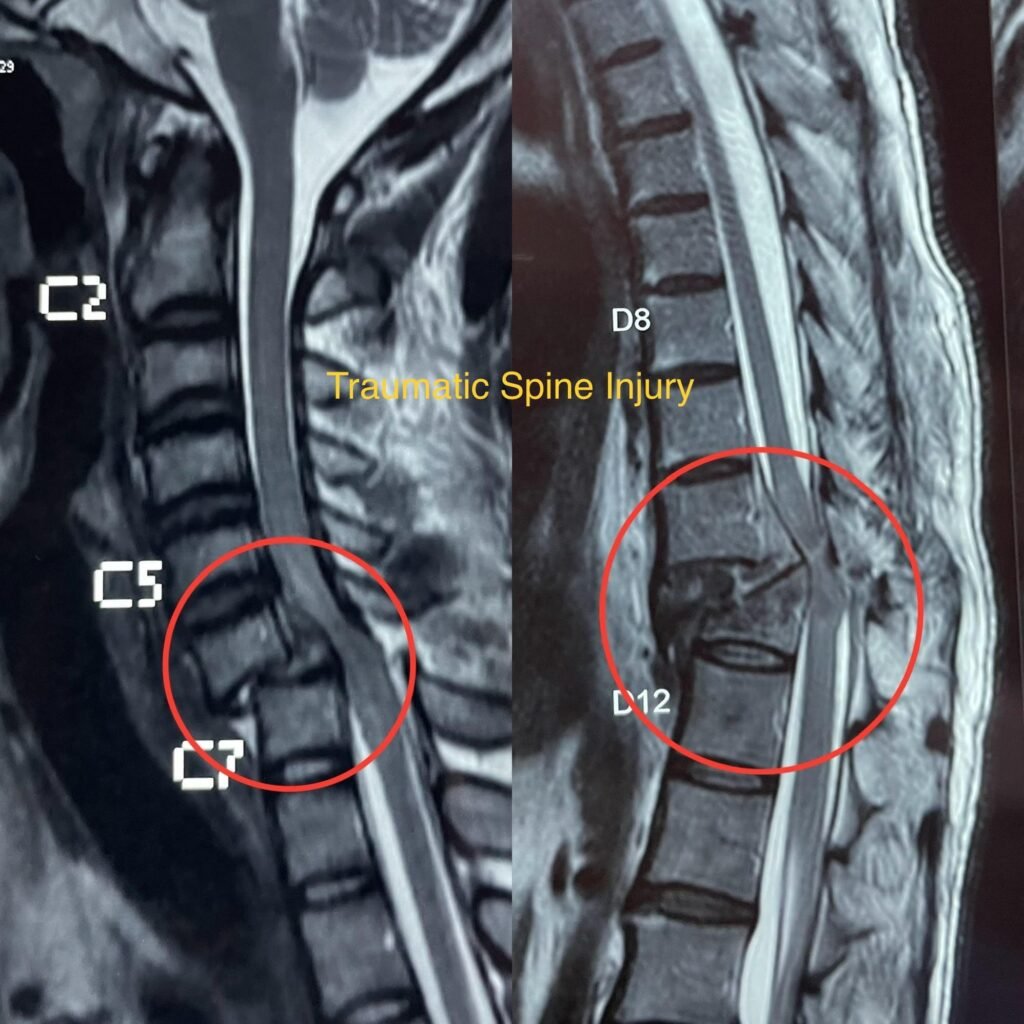Traumatic Spine Injury

What is it?
Traumatic Spine Injury refers to damage to the spinal cord, vertebrae, or surrounding tissues caused by trauma, such as motor vehicle accidents, falls, sports injuries, or acts of violence. These injuries can range from mild strains or sprains to severe fractures or dislocations, and they can result in various degrees of neurological deficits.
Symptoms:
- Symptoms of traumatic spine injury depend on the severity and location of the injury.
- Common symptoms may include back or neck pain, weakness, numbness or tingling in the limbs, difficulty walking or moving, loss of bowel or bladder control, and in severe cases, paralysis.
Primary Symptoms:
The primary symptoms of traumatic spine injury may include:
- Severe pain or tenderness in the back or neck at the site of injury.
- Inability to move or walk, or difficulty with coordination.
- Numbness or tingling sensation in the limbs, indicating nerve damage.
- Loss of bowel or bladder control, which may indicate injury to the lower spinal cord.
- Difficulty breathing, if the injury affects the nerves that control the muscles of respiration.
Diagnosis/Treatment:
- Diagnosis typically involves a thorough physical examination, medical history, and imaging studies such as X-rays, CT scans, or MRI to evaluate the extent and severity of the injury.
- Treatment options depend on the type and severity of the injury but may include immobilization with a brace or traction, pain management, physical therapy, and in severe cases, surgery to stabilize the spine, decompress the spinal cord, or repair damaged vertebrae.
What to Expect After Surgery:
- After surgery for traumatic spine injury, patients can expect relief from symptoms such as pain, instability, and neurological deficits.
- Recovery time varies depending on the extent of the injury and the type of surgery performed, but most patients can expect to gradually improve over several weeks to months.
- Rehabilitation, including physical therapy, occupational therapy, and possibly vocational therapy, may be necessary to maximize recovery and regain function.
Risk & Complications:
- As with any surgery, there are risks associated with procedures to treat traumatic spine injury, including infection, bleeding, nerve injury, spinal fluid leakage, and complications related to anesthesia.
- Additionally, there may be a risk of incomplete recovery, persistent pain or neurological deficits, or complications specific to the underlying injury, such as spinal instability or spinal cord damage.
However, complications are relatively rare, and the benefits of surgery often outweigh the risks, particularly when there is evidence of spinal instability, spinal cord compression, or neurological deficits that require surgical intervention.
Spine Treatments
About Dr. Bharat
Dr Bharat Shinde completed his M.Ch Neurosurgery from the National Institute Of Mental Health And Neurosciences (NIMHANS), Bangalore which is an institute of National importance.
